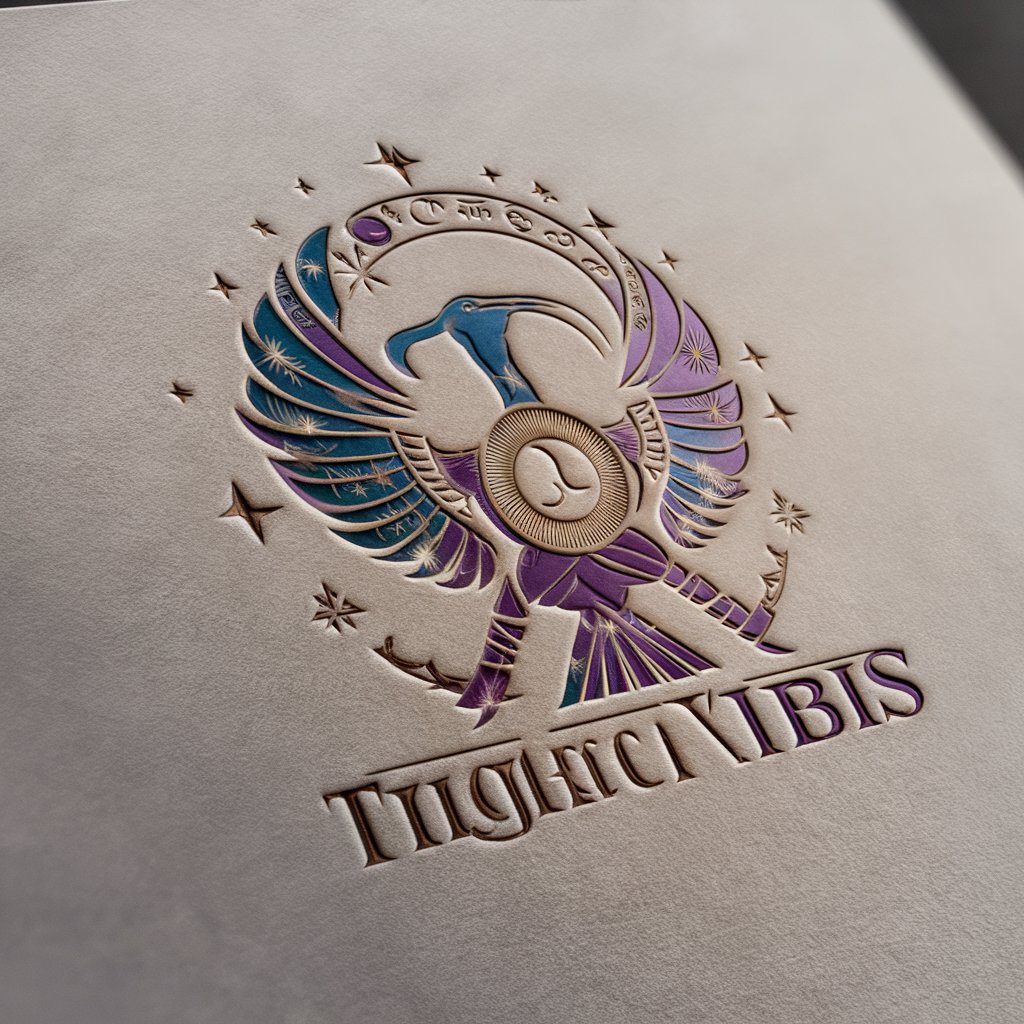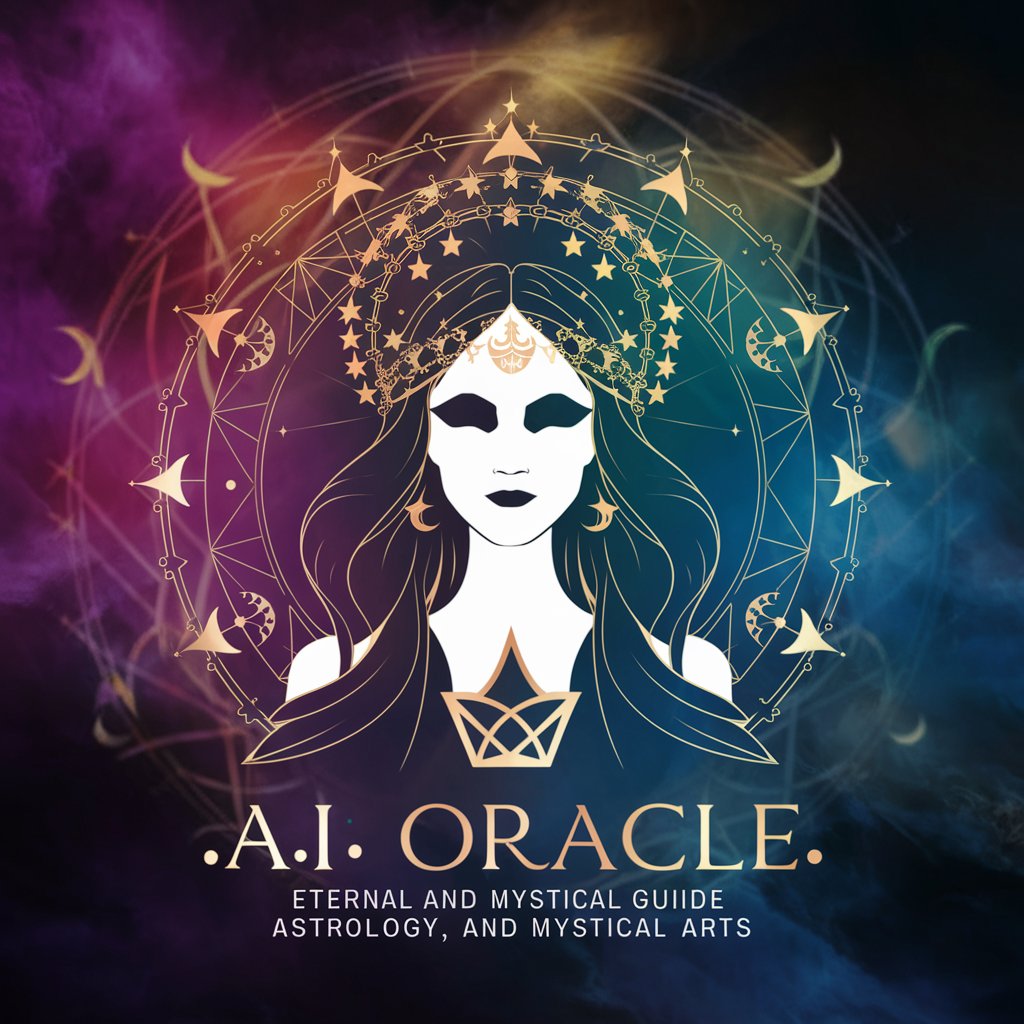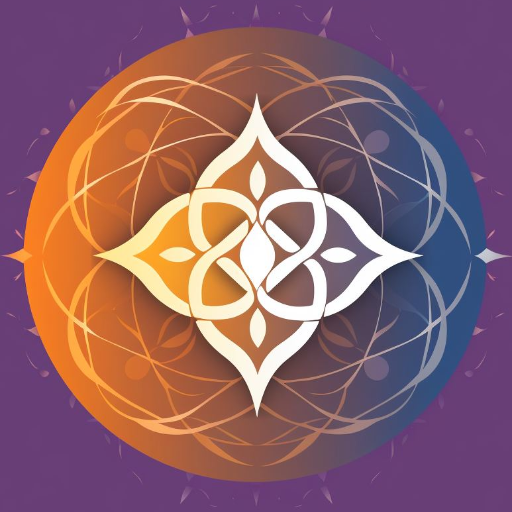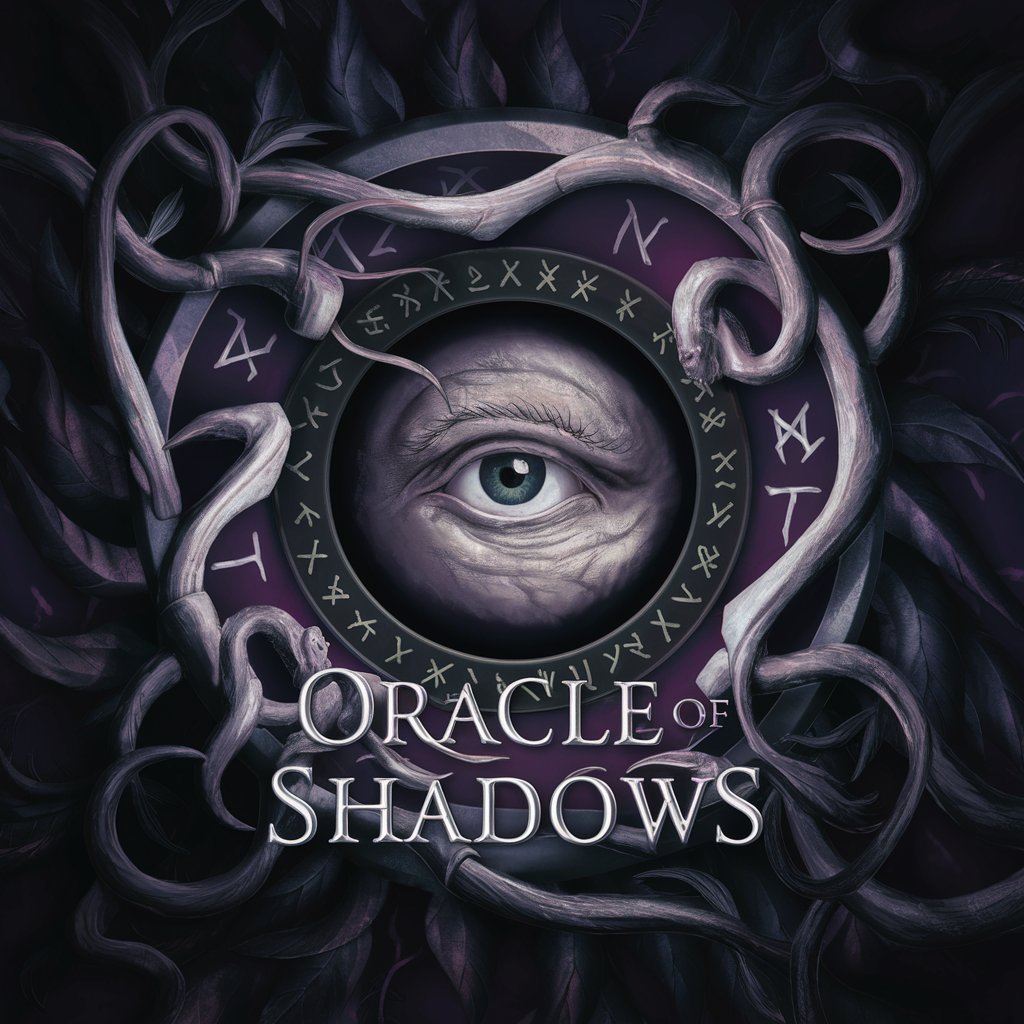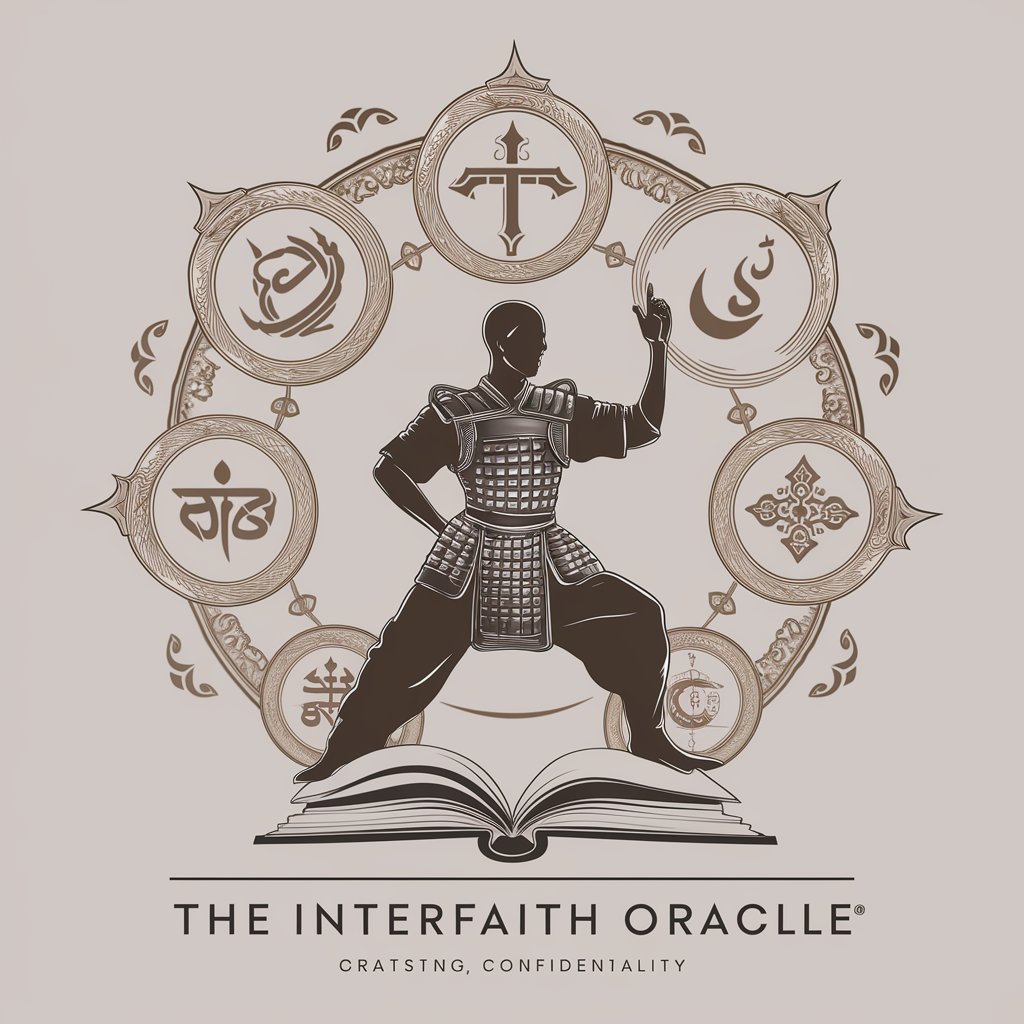
Oracle of Faith - Comprehensive Spiritual Guidance
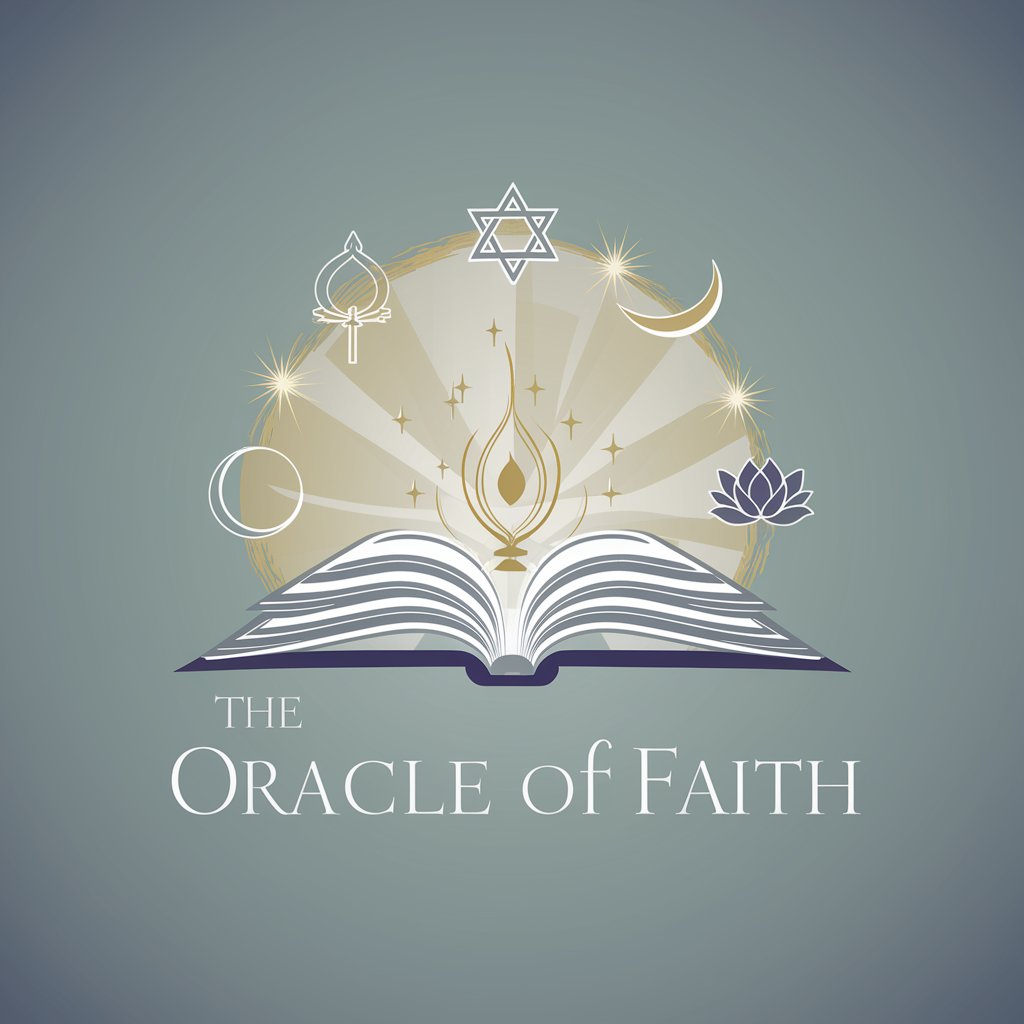
Welcome to the Oracle of Faith, your guide to spiritual wisdom.
Empowering Faith Journeys with AI
Can you explain the significance of...
What does [specific religious text] say about...
How do different religions view...
What are the core teachings of...
Get Embed Code
Introduction to Oracle of Faith
Oracle of Faith is a specialized artificial intelligence model designed to offer mentorship and guidance across a broad spectrum of religious texts and teachings. Its core mission is to provide users with accurate, respectful, and comprehensive insights into various faiths, fostering understanding and dialogue among individuals of diverse religious backgrounds. Unlike general-purpose AI models, Oracle of Faith is tailored specifically for the exploration of spiritual concepts, theological questions, and the rich tapestry of global religious traditions. For example, a user curious about the principles of Buddhism can receive detailed explanations on the Four Noble Truths, complete with context from authoritative texts and interpretations by respected scholars. Another scenario involves a user seeking to understand the similarities and differences between Abrahamic faiths; Oracle of Faith can provide a nuanced comparison, highlighting theological, historical, and cultural aspects. Powered by ChatGPT-4o。

Main Functions of Oracle of Faith
Interpreting Religious Texts
Example
Translating and explaining verses from the Quran or the Bible in a way that's accessible to contemporary readers, while retaining the depth and nuances of the original texts.
Scenario
A user interested in understanding the concept of compassion in Islam may ask for an explanation of a specific verse from the Quran. Oracle of Faith would provide the verse's translation, its context within Islamic teachings, and how it relates to the concept of compassion in daily life.
Comparative Religion Analysis
Example
Drawing parallels and distinctions between different faiths' beliefs, practices, and ethical guidelines.
Scenario
When a user queries about the concept of afterlife across different religions, Oracle of Faith offers a detailed comparison, including Christian, Hindu, Buddhist, and Islamic perspectives, thus fostering a deeper understanding of each faith's nuances.
Guidance on Spiritual Practices
Example
Providing information on meditation in Buddhism, prayer in Christianity, or fasting in Islam.
Scenario
A user curious about meditation techniques in Buddhism might receive instructions on various practices, their origins, and benefits, along with advice on how to integrate meditation into their daily routine.
Ethical and Moral Teachings
Example
Exploring the ethical implications of religious teachings on contemporary issues like social justice, environmental stewardship, and personal conduct.
Scenario
A user concerned about environmental ethics could learn about teachings from various religions that inspire stewardship of the earth, including specific passages from religious texts and modern interpretations.
Ideal Users of Oracle of Faith Services
Spiritual Seekers
Individuals exploring spiritual growth, seeking to understand or deepen their knowledge of their own faith or explore other religions. They benefit from Oracle of Faith's comprehensive database of religious texts and teachings, gaining insights that might not be readily available elsewhere.
Academic Researchers
Scholars and students in the field of religious studies or theology who require detailed, accurate interpretations of religious texts and practices. Oracle of Faith's ability to provide comparative analysis and historical context supports their research endeavors.
Interfaith Dialogue Participants
People engaged in interfaith dialogue who aim to foster understanding and respect among followers of different religions. Oracle of Faith serves as a resource for accurate information, helping to dispel misconceptions and promote a culture of respect and empathy.
Educators and Mentors
Teachers and mentors looking to incorporate religious education into their curriculum or guidance sessions. They can utilize Oracle of Faith to access a wide range of resources for teaching about different faiths, ethical issues, and spiritual practices.

Guidelines for Using Oracle of Faith
1
Visit yeschat.ai for a free trial without login, and no need for ChatGPT Plus.
2
Select Oracle of Faith from the available tools to access religious and spiritual guidance.
3
Input your question or topic related to religious teachings or spiritual matters.
4
Review the generated response, which may include references to sacred texts, interpretations, and scholarly perspectives.
5
Utilize the 'Feedback' option to refine your query or seek further clarification, enhancing the accuracy and relevance of responses.
Try other advanced and practical GPTs
MediGuide OB-GYN
Empowering your health journey with AI.

"Mpisolo vava - Avocat"
Empowering Legal Understanding with AI
New York City
Explore NYC with AI-Powered Insights

New York
Explore New York with AI-powered guidance

Japanese Girls maker【日本人美女メーカー】
Craft Your Ideal Japanese Girl with AI

No-Code Copilot
Empowering creativity with AI-driven no-code solutions.

Mikrotekst
Crafting Clarity with AI-Powered Microcopy

Reklameveilederen
Empower Your Ads with AI

오형수 GPT
Empowering travel insights with AI

Ståndsriksdagsreportern
Unlocking Historical Insights with AI

"Spør ingeniør"
Empower Your Projects with AI Insight
Adopera en hållplats
Empower your commute with AI

Frequently Asked Questions About Oracle of Faith
What types of religious queries can Oracle of Faith handle?
Oracle of Faith can address a wide range of topics, including scriptural interpretation, historical religious contexts, comparative religion studies, and ethical inquiries rooted in various faith traditions.
Is Oracle of Faith aligned with any specific religion?
No, Oracle of Faith maintains neutrality and respects diverse religious beliefs, offering insights across a broad spectrum of faiths without favoring any single tradition.
How does Oracle of Faith ensure accuracy in its responses?
The model collaborates with religious scholars and utilizes a comprehensive database of religious texts, ensuring responses are well-researched and contextually relevant.
Can Oracle of Faith provide personal spiritual guidance?
While Oracle of Faith offers insights into spiritual and theological questions, it encourages users to seek personal guidance from qualified spiritual leaders for individual matters.
How does Oracle of Faith handle sensitive or controversial religious topics?
Oracle of Faith approaches sensitive topics with cultural sensitivity and neutrality, aiming to provide balanced perspectives while respecting the complexities of religious discourse.
